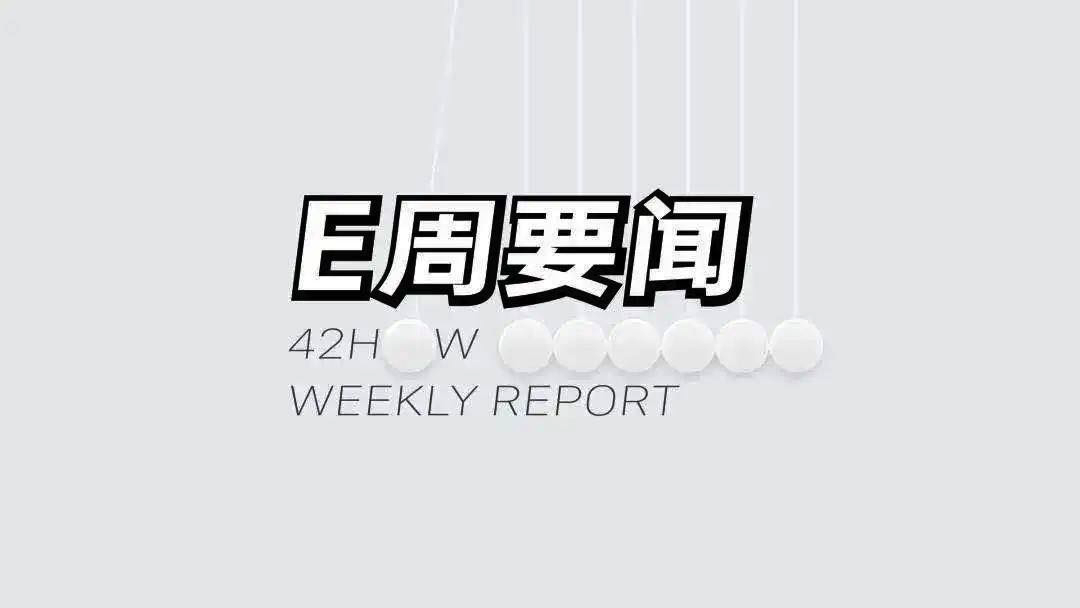Weekly Index
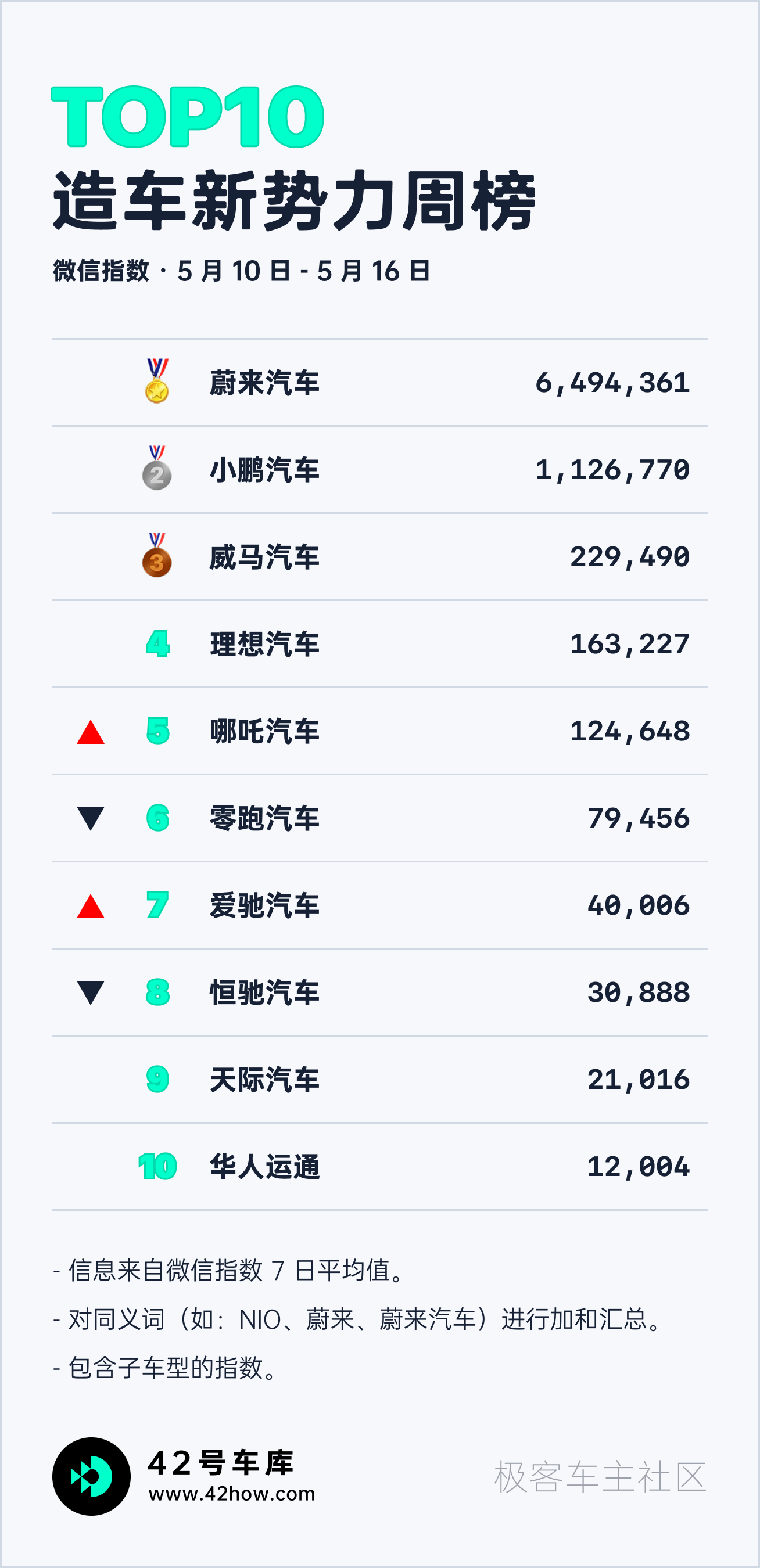
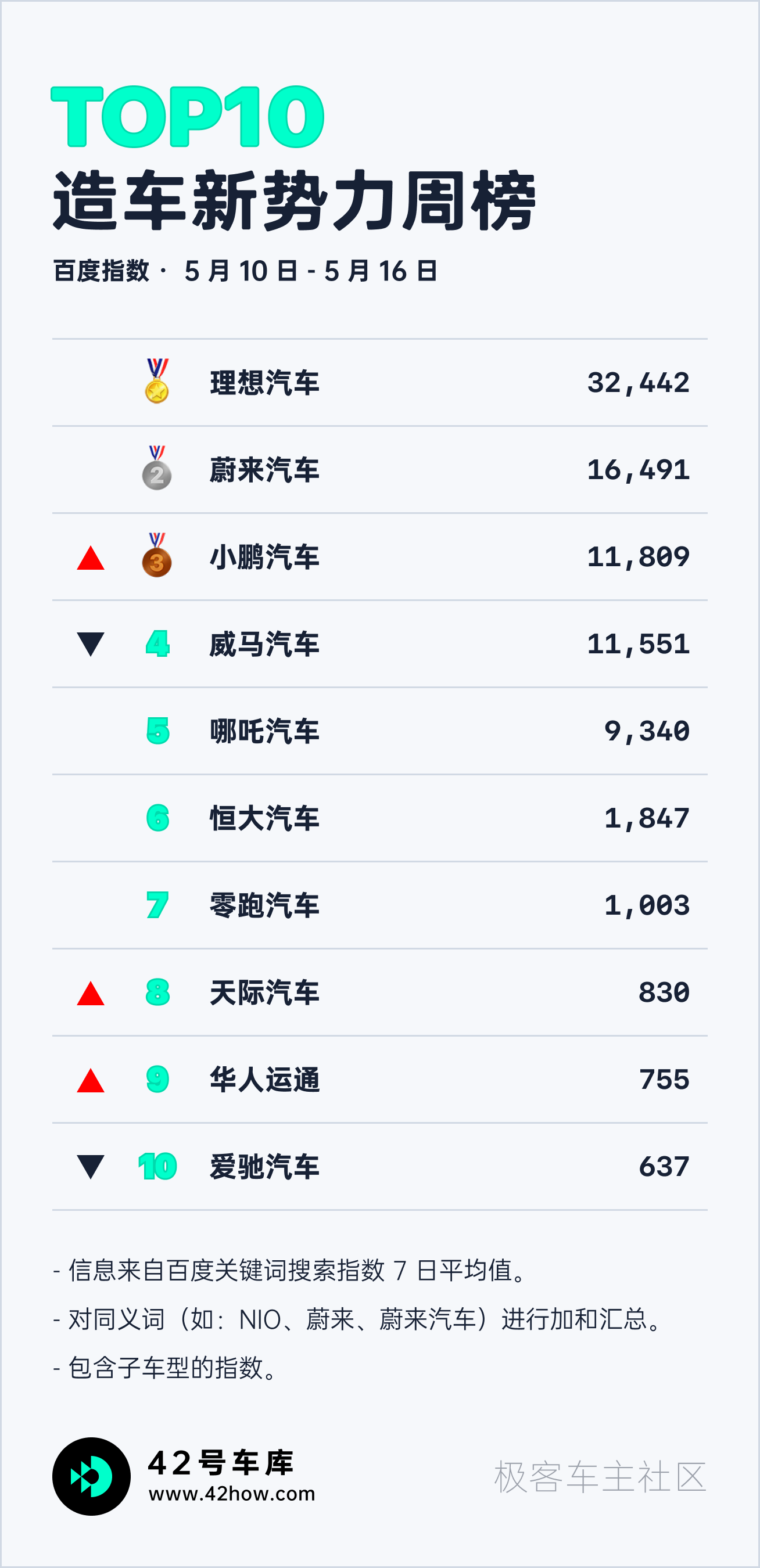
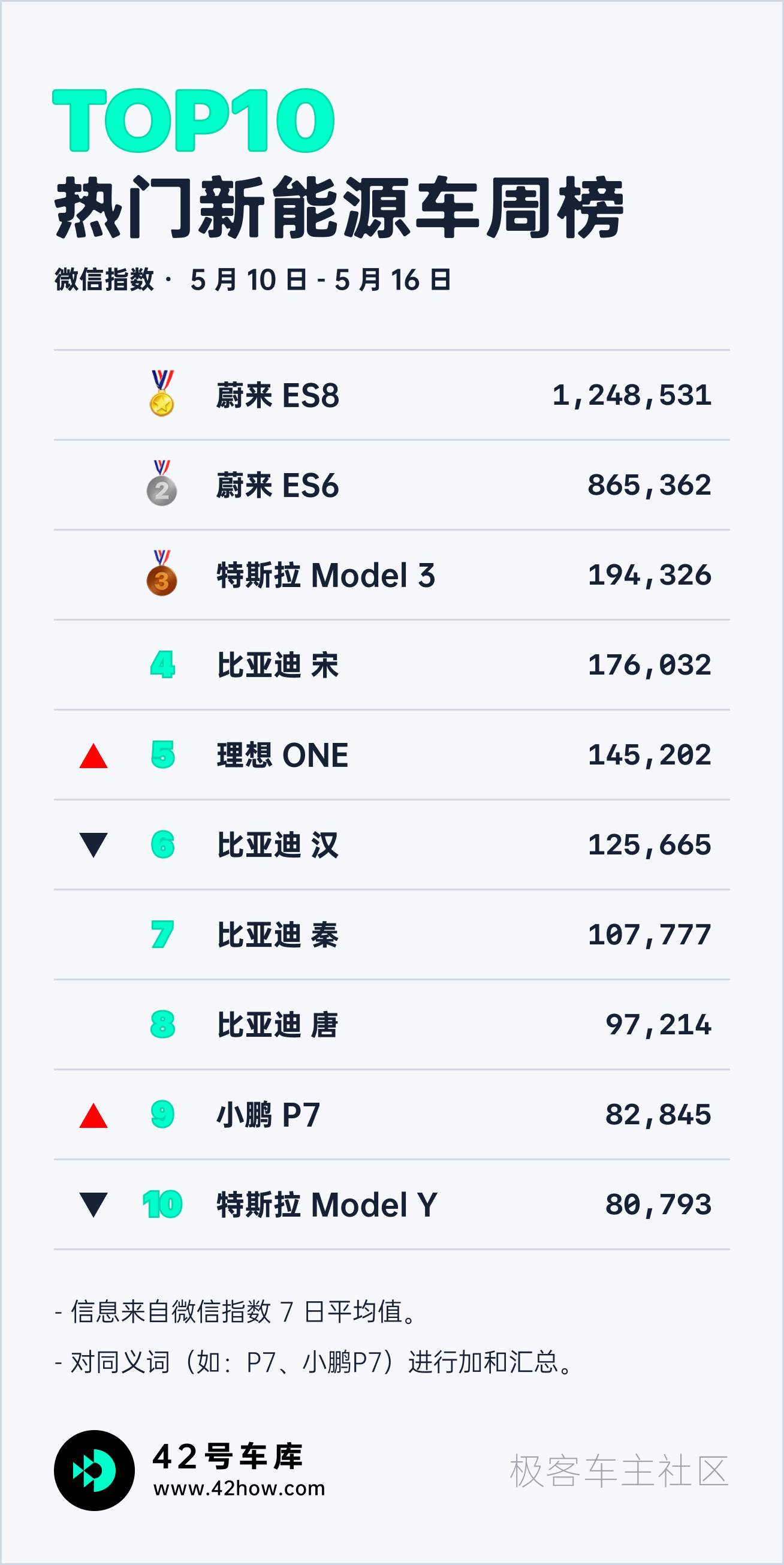
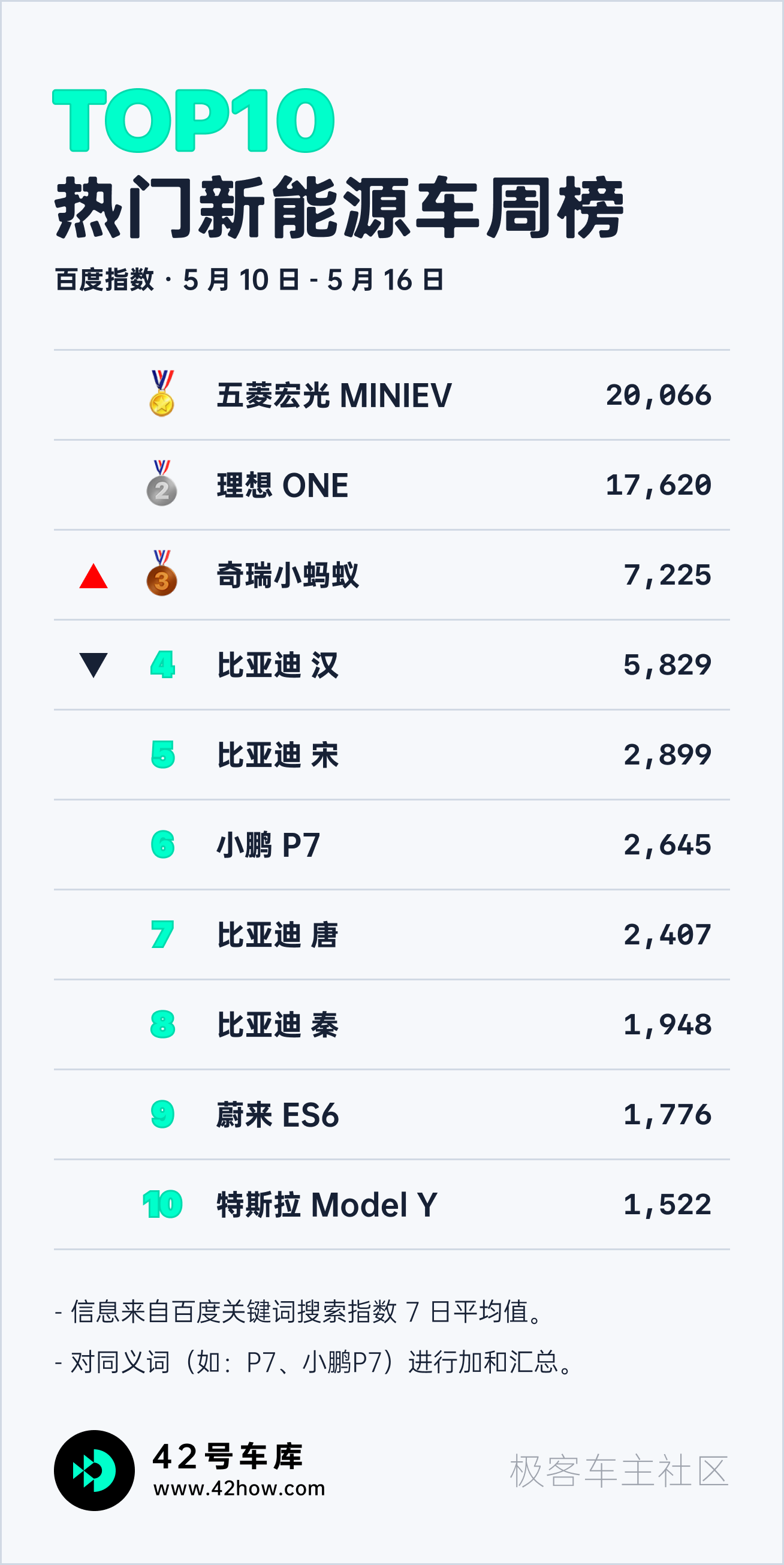
Weekly News
GAC Aion and Didi Jointly Develop Autonomous New Energy Vehicles
On May 17th, GAC Aion announced that it had reached a strategic cooperation agreement with Didi’s autonomous driving subsidiary. The signing ceremony was held in Beijing.
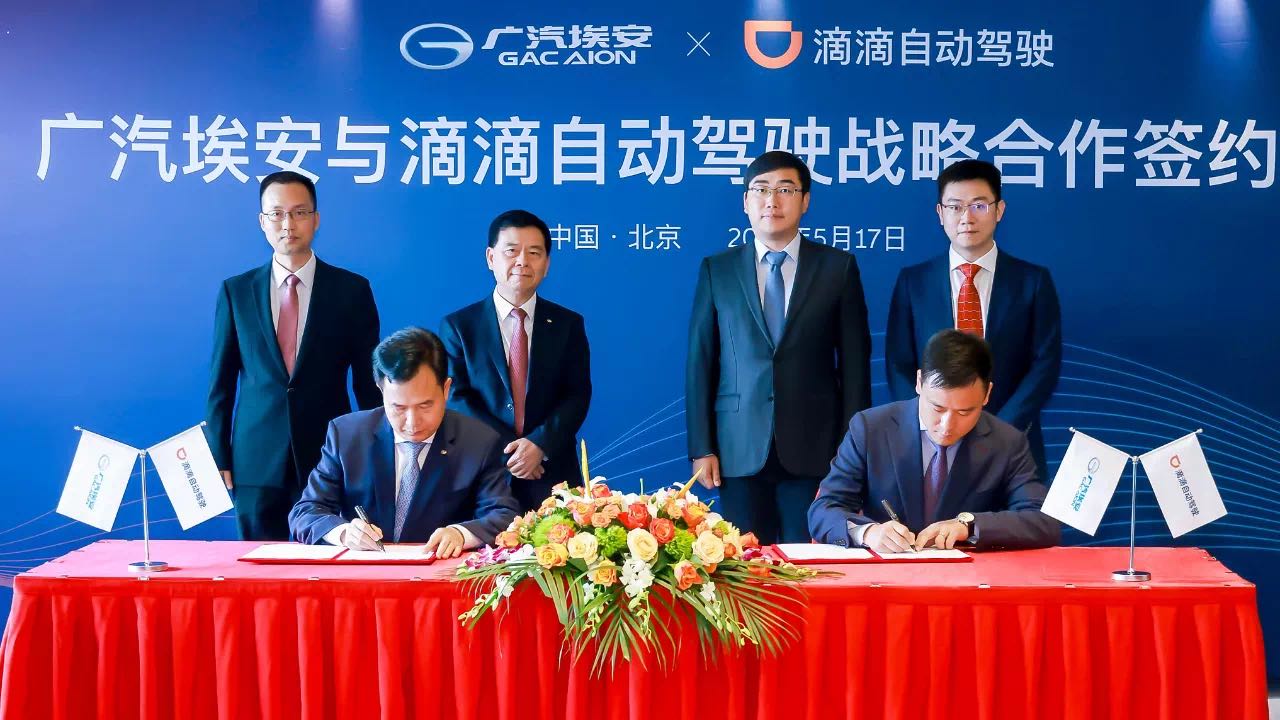
GAC Aion and Didi stated that they will explore joint venture and cooperation models in the field of intelligent vehicles, combining GAC Aion’s overall dynamic driving chassis platform and whole vehicle design and manufacturing capabilities with Didi’s autonomous driving software and hardware technology advantages. They aim to redefine and develop a new energy autonomous vehicle that can be put into large-scale production from the basic dimensions of wired chassis, autonomous driving sensors and system integration. The plan is to achieve mass production as soon as possible.
Quick Commentary:
Collaborations between traditional automakers and automotive technology companies are becoming more and more common. In June last year, Volvo announced a partnership with Waymo to develop autonomous electric taxis. Waymo will become its L4 autonomous driving partner, and its autonomous driving technology will be applied to the Volvo-owned Polestar and Lynk & Co brands. GAC Aion’s collaboration with Didi is similar to this. We are now waiting for specific information on the mass production of this autonomous new energy vehicle.
Tesla Responds to Test Before Delivery: Not Mandatory
On May 16th, the Garage received a reader’s submission, stating that Tesla had added a test before delivery.
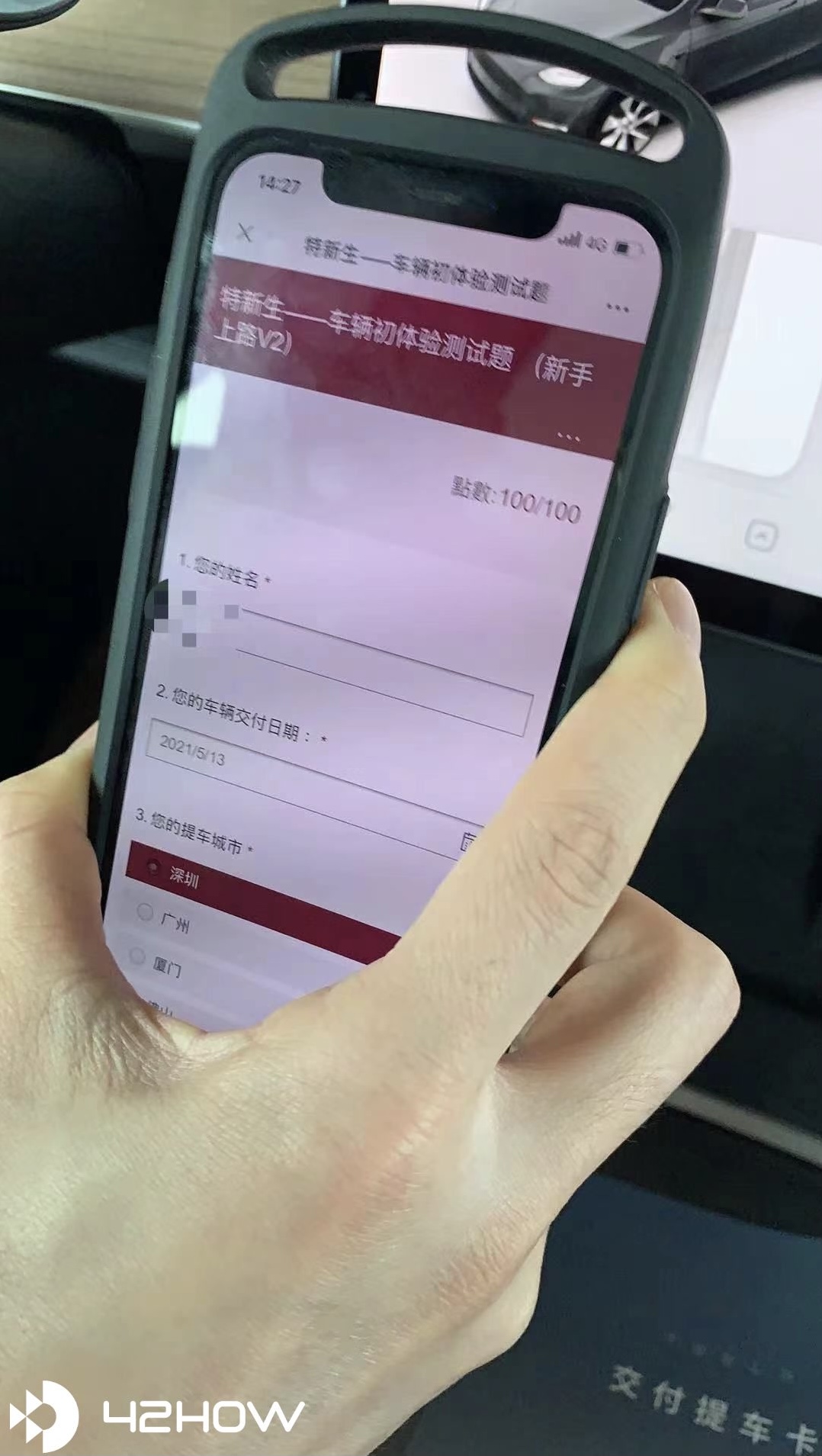
On the afternoon of the same day, Tesla responded on Weibo that the “test before delivery” was an activity called the “Delivery Day Customer Lecture” that had just started. Tesla will not require any owners to participate in the tests, nor are there any score requirements.
Quick Commentary:Tesla further explained that the intention of this event was to release more driving pleasure, improve the driving experience of car owners, and help car owners improve their new car experience. In the past year, the electric car industry has rapidly developed. With the continuous increase in Tesla’s sales, the user base has also been constantly expanding. Therefore, it is necessary to popularize science for new users. In addition to improving the experience, it also helps the subsequent safety of car owners.
On May 14th, Reuters cited insiders as saying that Tesla is negotiating with EVE Energy and may become a supplier of Tesla Shanghai Super Factory. An insider said that EVE Energy, listed in Shenzhen, is currently conducting some final stage tests on the products it produces for Tesla.
In response, Liu Jincheng, chairman of EVE Energy, stated that there is no basis for this news, and “EVE Energy strictly abides by the information disclosure regulations and takes the announcement information as the standard.”
Comment: Currently, the Model 3 / Y produced by Tesla Shanghai Super Factory uses lithium iron phosphate batteries from CATL and ternary lithium batteries from Nanjing LG Chemical. If the news is true and the negotiations are successful, EVE Energy will become the second supplier of Tesla’s lithium iron phosphate batteries after CATL. In addition to providing batteries for the CATL version of P7 and G3 for XPeng Motors, EVE Energy also announced in March that it has established a battery supply partnership with BMW and Daimler.
According to Forbes, last Thursday, Fisker, a US-based EV start-up, and Foxconn signed the PEAR (Personal Electric Automotive Revolution) agreement, aiming to produce and sell a five-seater compact electric vehicle with a price below $30,000.
At present, the two parties have not disclosed much information about this model, but the production of the vehicle may be carried out at Foxconn’s factory in Wisconsin.
Comment:# Fujian Foxconn Deepens Footprint in the Car Making Field
Since the start of this year, Foxconn has accelerated its pace in the field of car making. In early January, Foxconn, Byton, and Nanjing Economic Development Zone signed a strategic cooperation framework agreement, aiming to invest ¥200 million and provide manufacturing technology, operational management experience, and industry chain resources to support the mass production of the Byton M-Byte, the first model of Byton. Subsequently, Foxconn and Geely signed a strategic cooperation agreement to establish a joint venture focusing on electric vehicle production. At the end of February, Foxconn and Geely’s joint venture project expressed that they were discussing the possibility of cooperation with Fisker and other electric vehicle start-ups. This cooperation with Fisker undoubtedly represents another possibility for Foxconn’s exploration in the car making field.
Toyota Says Most of Its Models Will Still Use Gasoline by 2030
According to the Wall Street Journal, Toyota stated in a press conference last Wednesday that the development of electric vehicles and charging infrastructure is not necessarily optimistic even by 2030, and believes that hybrid and plug-in hybrid models are more widely accepted by consumers.
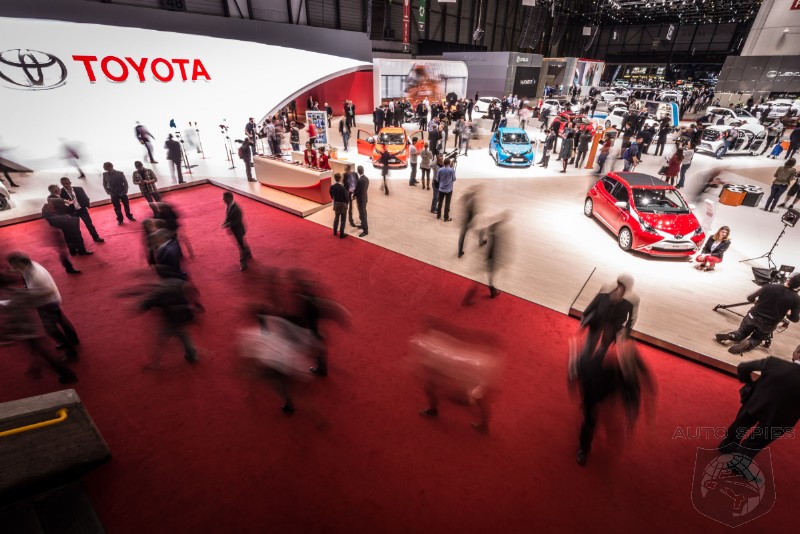
(Image Source: Automotive News Canada)
Toyota believes that even if battery technology for electric vehicles is matured, there will still be a large amount of carbon emissions throughout the lifecycle of pure battery electric vehicles if they are charged with coal or other non-renewable energy sources.
Quick Comment:
In December last year, Akio Toyoda, the President of Toyota, stated that electric cars are being overhyped without considering the carbon emissions during the power generation and the cost of transitioning to electric cars. However, under the global trend of electrification, Toyota does not have many options left. At the end of last year, the Japanese Government has planned to ban the sale of gasoline-powered cars by 2035. Toyota’s competitors have already set timelines to transition to the full electric vehicle product line.
360 teams up with NIO to produce cars
On May 11th, Zhou Hongyi, founder and chairman of 360 Group, announced the strategic investment of 360 in NIO, becoming NIO’s second-largest shareholder after the investment is complete.
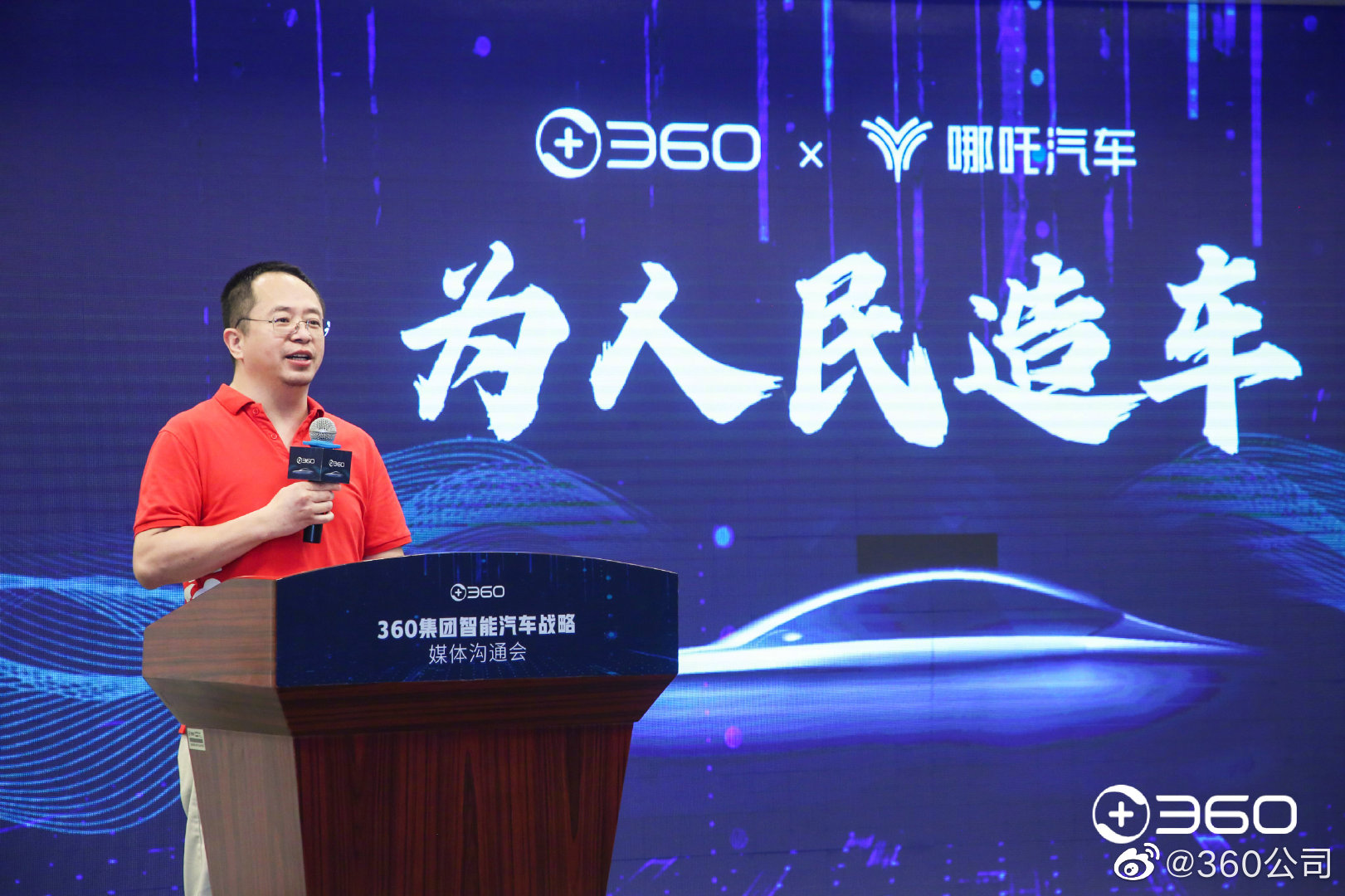
Zhou Hongyi stated that 360 and NIO’s joint car production aims to allow more users to drive intelligent cars, with a product positioning of around ¥100,000.
Quick Comment:360 believes that intelligent vehicles are an important entry point for providing comprehensive safety services. As intelligent vehicles become increasingly popular, the security risks associated with network safety become more apparent. For 360, this represents both an opportunity and a challenge. On May 10th, the day before the 360 media communication meeting, NETA Automobile’s 40,000th production vehicle rolled off the assembly line. One side provides the hardware capabilities for car manufacturing, while the other provides the internet technology gene. This is also the most common model for technology companies to enter the automotive industry.
This article is a translation by ChatGPT of a Chinese report from 42HOW. If you have any questions about it, please email bd@42how.com.
